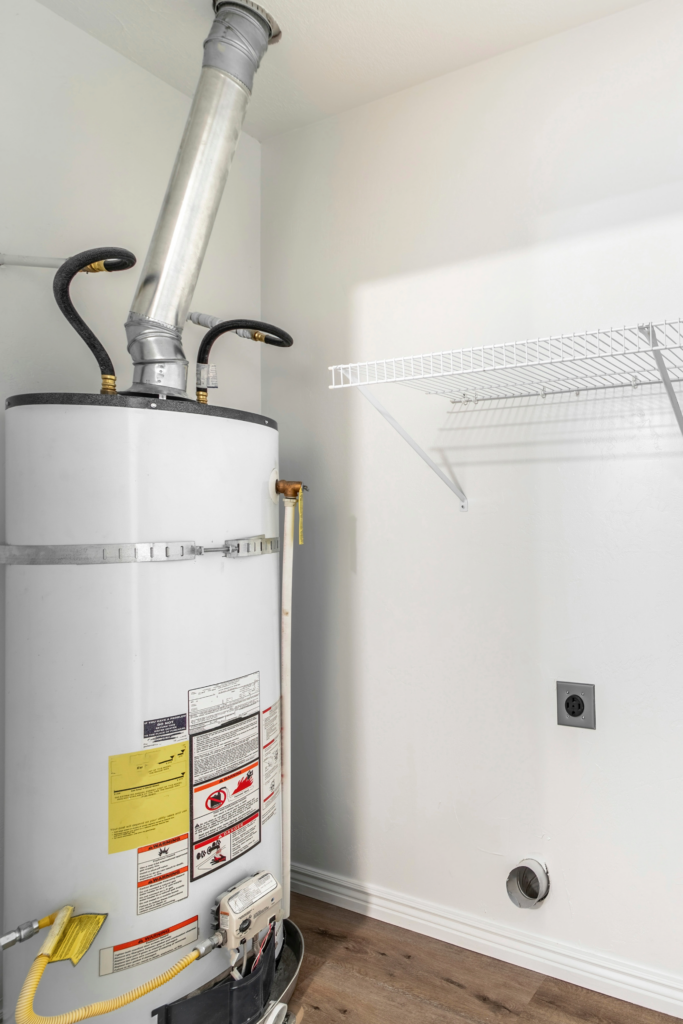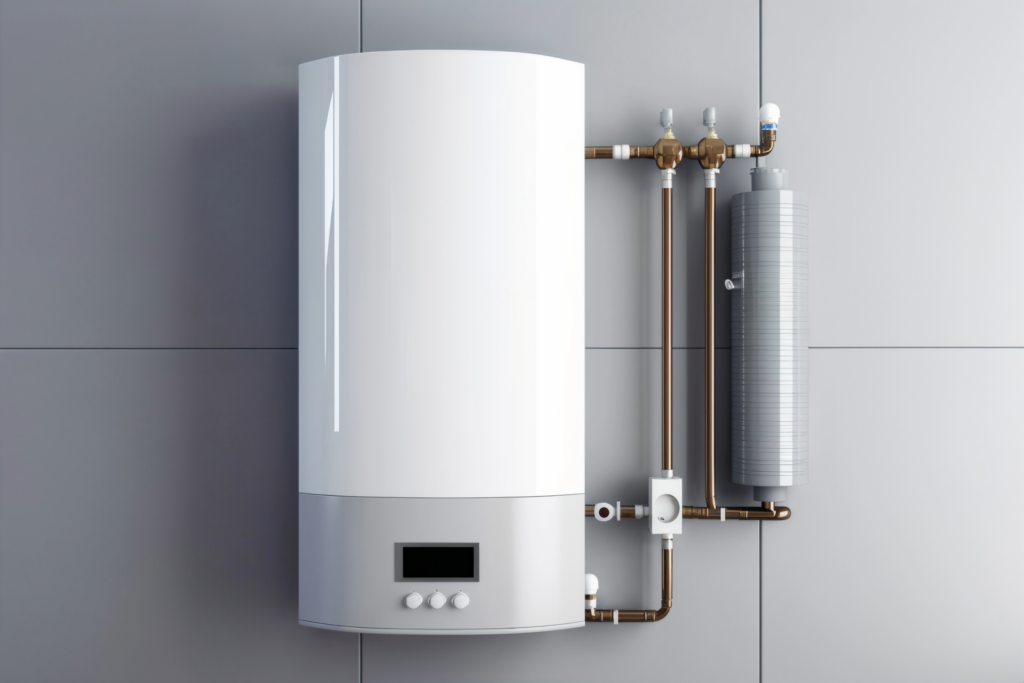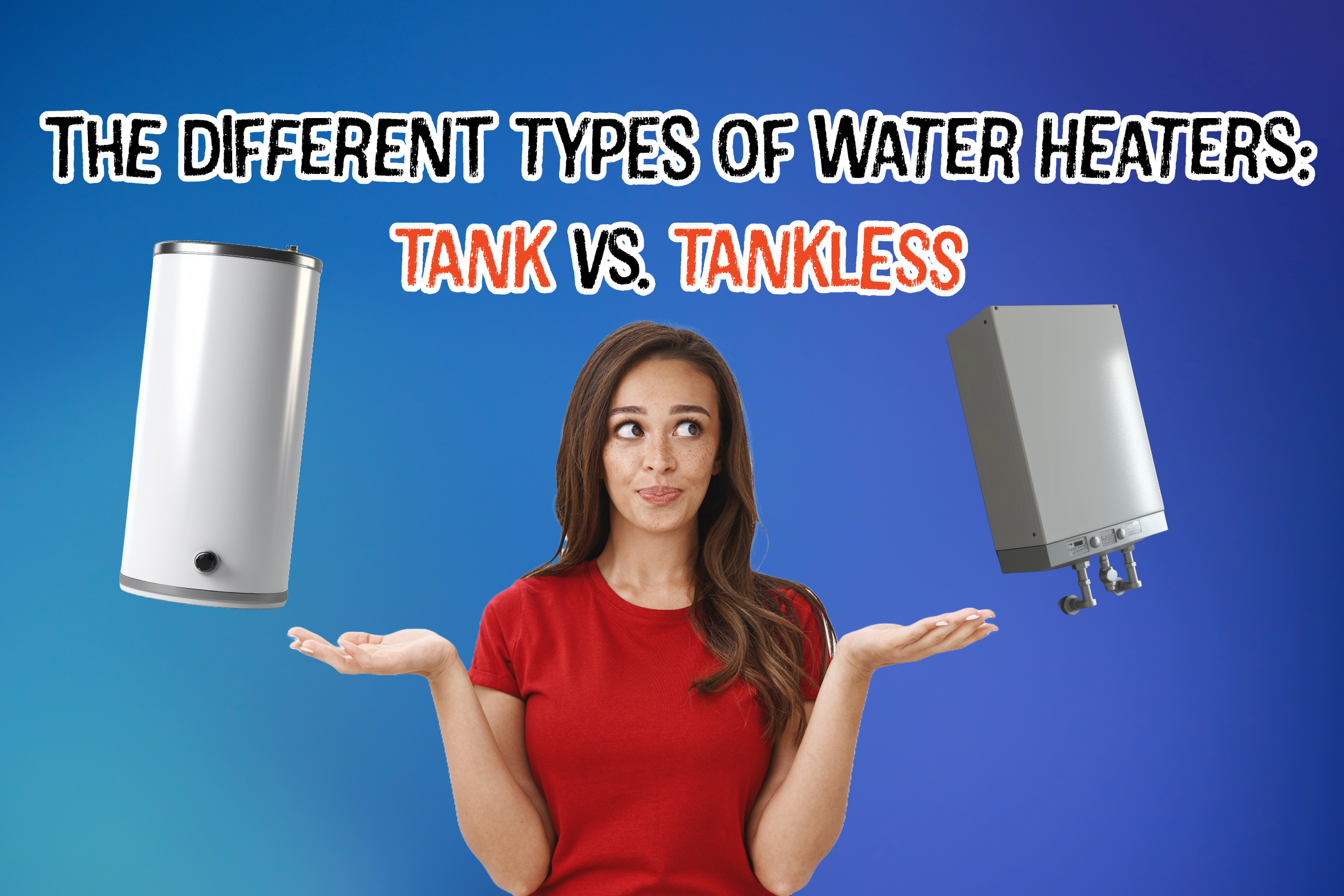When looking for a replacement water heater, it’s important to understand the difference between tank and tankless models. Like most products, each type has its pros and cons. There isn’t a one-size-fits-all water heater; every household has unique needs that will determine the best model for you. Let the experts at Grove City Plumbing & Drain help you identify your needs and explain the advantages and disadvantages of each water heater type.
Tank Water Heaters
Tank water heaters, also called storage tank water heaters, are the most common type found in homes. These heaters consist of an insulated tank that holds, heats, and stores hot water until it’s needed. They typically run on electricity or natural gas and come in sizes ranging from 30 to over 75 gallons for residential use.

The Benefits of Tank Water Heaters:
- Easier and quicker installation: Tank water heaters are simple to install, which helps keep initial costs down.
- Large hot water storage: These heaters can store a significant amount of hot water, ready for use whenever you need it.
- Low maintenance: Keeping up with a tank water heater’s maintenance is easy—just follow a regular flushing routine, which you can do yourself or hire a plumber for.
- Lifespan: With proper care, a tank water heater can last between 8 and 10 years.
The Energy Efficiency of Tank Water Heaters:
Some storage tank water heaters are designed and insulated so well that they can reduce standby heat loss, which helps lower your monthly energy bills. This highlights the importance of choosing the right water heater for your home.
The Price of Tank Water Heaters:
When considering tank water heaters, it’s essential to look at all the associated costs.
- They have lower upfront costs.
- Maintenance costs are generally less.
- Repairs tend to be cheaper because of their simple design.
Tank Water Heaters Are Best for:
These water heaters have a limited supply of hot water based on the size of their storage tank, making them ideal for small to medium-sized families.
Tankless Water Heaters
Tankless water heaters, also called on-demand water heaters, use efficient burners to heat water quickly as you need it, so there’s no need for storage. They typically run on either electricity or gas.

The Benefits of Tankless Water Heaters:
- Endless hot water: A tankless water heater provides a constant supply of hot water, eliminating the worry of running out. Unlike traditional heaters that store a limited amount of hot water and require time to refill and heat more, tankless systems deliver hot water on demand as long as there’s fuel or power.
- Space-efficient: Tankless water heaters are typically wall-mounted, freeing up floor space, which is especially useful for smaller homes with limited room.
- Longer lifespan: With proper maintenance and depending on your home’s water type and usage, tankless water heaters can last up to 15 years. In contrast, traditional heaters usually last around 8-10 years. Choosing a tankless model means less frequent replacements, saving you money over time.
The Energy Efficiency of Tankless Water Heaters:
According to energy.gov, homes with tankless water heaters can save up to 34% on energy compared to traditional storage tank heaters. If your household uses a lot of hot water daily, a tankless water heater might be the best choice for you.
The Price of Tankless Water Heaters:
It’s important to look at all costs when considering tankless water heaters.
- They come with higher upfront costs.
- However, they offer better monthly savings due to their energy efficiency.
Who Should Consider Tankless Water Heaters:
- These heaters provide an endless supply of hot water, making them great for larger homes or families.
- They are also recommended for homes with hot tubs or soaking tubs.

Understanding the differences between tank and tankless water heaters is crucial for making a confident, informed choice that suits your household. We sincerely hope this has answered your questions and offered valuable insights to steer you in the right direction as you make your decision on your next water heater.
We’re here to answer any questions you have. Feel free to reach out to Grove City Plumbing & Drain by calling us today at (614) 362-3345 or clicking here to schedule an appointment now!




